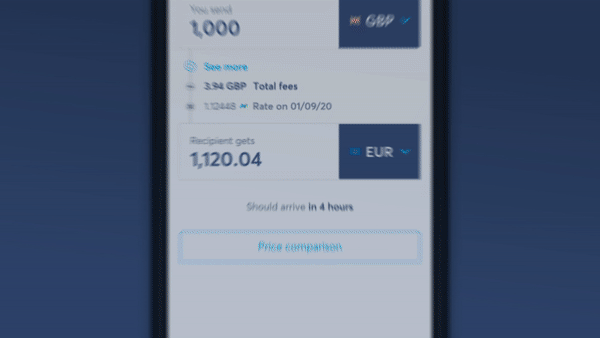American Express Platinum Travel Card Review: Fees, benefits and is it worth it?
Thinking about getting the Amex Platinum Travel Card? Explore its fees, rewards, perks, lounge access, and overseas charges.

You may have heard of NRE or NRO bank accounts, but what about accounts for those who are returning to India from abroad?
RFC accounts can be a solution if you are a recently returned NRI or are earning income overseas.
They are a unique bank account offered at many Indian banks that can help you keep your foreign earned income in the foreign currency. Read on to learn more about what a RFC account is, what the different types are and how to use it.
| With Wise you can transfer money online directly to your local Indian bank accounts at the real exchange rate 🚀 |
|---|
Open your free Wise account now
| 📝 Table of contents |
|---|
RFC stands for Resident Foreign Currency Account.
Per the RBI, a foreign currency account is an Indian bank account that lets you hold money in a non-Indian Rupee currency.
A Resident Foreign Currency Account is open to residents of India who have earnings in a forign currency abroad and have not exchanged it into Indian Rupees. The account can be opened and held by the resident as an individual, or a qualifying joint owner.
If you are a Non Resident Indian looking to come back to India, an RFC account can be helpful to house your foreign earnings. Even if you are a resident Indian, a RFC account can help manage foreign earned income.
| ⚠️ To be considered a Resident of India, you must be living in India for more than 182 days within a financial year. ¹ |
|---|
An RFC will give you the freedom to hold foreign earned currency domestically and then convert and transfer to your Indian rupee account when you want.
But, depending on the bank, you are limited to only a handful of currencies in which you can open a RFC account in.
Here are some of the banks you can open an RFC account with:
You may need to have a current or savings account with the bank that you choose to open a RFC with.
RFC accounts come in 2 forms, a standard RFC and a RFC Domestic Account. Here is how they compare²:
| Resident Foreign Currency Domestic Account | Resident Foreign Currency Account | |
|---|---|---|
| Held by | Individual or Joint, depending on the bank | Individual or Joint, depending on the bank |
| Type of Account | Current | Current, Savings or Term deposits |
| Interest | No Interest | Depends on the bank |
| Examples of how foreign currency can be received | As a a gift or payment from relatives or non-residents | Payments from employers abroad |
One benefit of a RFC is that if you are a current Indian resident, but do go abroad and qualify as a NRI in the future, the account can be repatriated.
The Foreign Currency Non-Resident Account, or FCNR, is a term deposit account where you get an interest rate, and the term deposit comes to maturity.
This is different from an RFC, which is a functioning bank account where you can convert and draw money from.
FCNR term deposits can be held for a maximum of 5 years.³
An RFC fixed deposit works like a normal Indian fixed deposit account but is held domestically in a foreign currency by an Indian resident. There is an interest rate and can be repatriated if eligible or moved into a NRE/FCNR account.⁴
To open an RFC account you must be a resident of India. NRIs who are living abroad for the majority of the year and have a foreign residence won’t qualify.
In most cases, you will also need to have an existing current or savings account with the bank that you open an RFC with.
Partnerships, minors or HUFs are not permitted to open an RFC account.
If you want to open an RFC account, be ready to provide and complete KYC documentation including proof of residency in India. ⁵
You will also have to ensure that the currency you are using to fund your account is one of the eligible currencies. Here is a sample of currencies for RFC accounts at major Indian banks.
| Bank | RFC Account Currencies |
|---|---|
| HDFC | USD, GBP, Euro, AUD, JPY, CAD |
| SBI | USD, GBP, Euro |
| IndusInd | USD, GBP, Euro |
| Yes Bank | USD, GBP, Euro, AUD, JPY, CAD |
The type of currencies available will also depend on the type of RFC account you choose.
When you are looking for an RFC account, be sure to check the interest rate the bank is offering. The banks can be competitive in the interest rates they give, but as always the longer you hold the fixed deposit, the higher the rate.
Here is how HDFC bank gives interest rates for their RFC Fixed Deposit Account⁶:
| Time | USD | GBP | Euro | CAD | AUD | JPY |
|---|---|---|---|---|---|---|
| 1-2 years | 0.01% | 0.01% | 0.01% | 0.01% | 0.01% | 0.01% |
| 2-3 years | 0.01% | 0.01% | 0.01% | 0.01% | 0.01% | 0.01% |
| 3-4 years | 0.01% | 0.01% | 0.01% | 0.01% | 0.01% | 0.01% |
| 4-5 years | 0.01% | 0.01% | 0.01% | 0.01% | 0.01% | 0.01% |
| 5 years | 0.01% | 0.01% | 0.01% | 0.018% | 0.01% | 0.01% |
Effective as of Feb 1, 2021

Want to send money to India the easy, fast and cheap way? Check out the Wise Account in selected countries. It is a free online wallet that is easy to sign up and can get your money to India in just a few minutes.
Open your free Wise account now
Wise is used by people around the world to send money back home. With transfers that deposit to a local bank account abroad, you won’t be limited by where you are or where you are sending money to.
And it is all at the real exchange rate. No mark ups or fees here. You will get the same exchange rate you see on Google for every transfer to India.
So whether you are on the go or on the other side of the world, you can get your money to India with just a few taps on the Wise app or online site. Check out Wise now and see how much you can save on your next transfer to India.
All sources checked as of 26 February, 2021
*Please see terms of use and product availability for your region or visit Wise fees and pricing for the most up to date pricing and fee information.
This publication is provided for general information purposes and does not constitute legal, tax or other professional advice from Wise Payments Limited or its subsidiaries and its affiliates, and it is not intended as a substitute for obtaining advice from a financial advisor or any other professional.
We make no representations, warranties or guarantees, whether expressed or implied, that the content in the publication is accurate, complete or up to date.

Thinking about getting the Amex Platinum Travel Card? Explore its fees, rewards, perks, lounge access, and overseas charges.

Wondering which Thomas Cook Forex Card is right for your next trip? We break down the benefits and charges of each variant to help you decide.

Considering the Scapia Federal Bank credit card? Get a full review of its zero forex, rewards, and fees. Find out if it’s the right travel card for you.

Thinking about getting an Axis Bank Forex Card? Here’s a breakdown of its benefits, charges, and how it works so you can choose what works best for your trip.

Heading abroad? In our HDFC Regalia ForexPlus Card review, we break down the benefits, charges, and compare with the Wise Travel card to help you choose.

Considering the Orient Exchange Forex Card? Here’s what to know about its features, benefits, and charges, before you decide if it’s worth it.